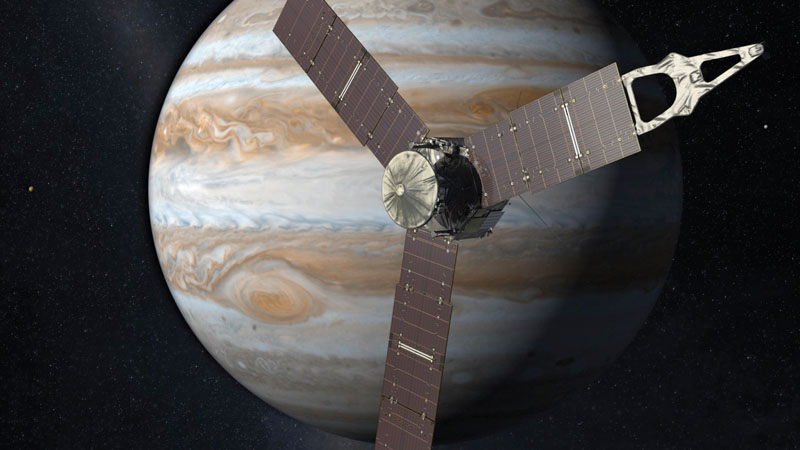Stay Up to Date
Submit your email address to receive the latest industry and Aerospace America news.
Science and space exploration advocates are cautiously optimistic that existing NASA science missions will be spared some of the significant budget cuts proposed earlier this year, according to a Planetary Society official.
“We are in a much better position than we were six months ago — better, frankly, than I expected,” Casey Dreier, chief of space policy at the nonprofit advocate for space exploration, said in a Wednesday press conference. “Congress is listening. Advocacy is working, but we cannot let up.”
The Trump administration’s fiscal 2026 budget, released in May, proposed cutting NASA’s overall funding by 24% and also slashing by 47% the budget for NASA’s Science Mission Directorate, which includes funding for upcoming and existing spacecraft missions to the sun and other planets.
- RELATED READING: Panelists warn that cutting ISS research could harm future commercial stations
- RELATED READING: U.S. universities brace for deep cuts to NASA science
However, after the budget was released, President Donald Trump signed a sweeping legislative package that allocated $10 billion in new funding for NASA. And some members of Congress have vowed to ensure that NASA retains enough funding to maintain a large portfolio of science missions.
But until Congress passes that final budget, Dreier and his colleagues at the Planetary Society said they remain worried that administration officials could direct NASA to shut down 19 ongoing missions.
The society and other advocates have urged Congress to pass a short-term spending bill that prohibits termination or suspension of active NASA missions. Otherwise, the agency may have to spend money terminating such missions. Of particular concern is that the federal Office of Management and Budget could enforce the proposed cuts before Congress passes the fiscal 2026 budget.
Among the potentially affected missions are the Juno spacecraft orbiting Jupiter, the MAVEN Mars orbiter and the New Horizons probe, which is currently traversing the Kuiper Belt beyond Neptune.
“If enacted, the president’s budget request would see these missions disappear. They want them to go away overnight,” Dreier said.
The society, along with over a dozen other groups, on Wednesday signed onto a letter calling for the short-term spending bill approach. Co-signers include the American Geophysical Union, the American Society for Gravitational and Space Research and the Association of American Universities.
The effort to prevent mission shutdowns has bipartisan support. Reps. Judy Chu (D-CA) and Don Bacon (R-NE) on Tuesday released a letter they sent to leaders calling for the same approach. And Wednesday evening, Sen. Patty Murray (D-WA) and Rep. Rosa DeLauro (D-CT) introduced a new bill to add a provision to a short-term continuing resolution that “any mission in operation, including extended operations, or under development or formulation” by NASA’s Science Mission Directorate as of Sept. 1 “shall be continued.”
About paul brinkmann
Paul covers advanced air mobility, space launches and more for our website and the quarterly magazine. Paul joined us in 2022 and is based near Kennedy Space Center in Florida. He previously covered aerospace for United Press International and the Orlando Sentinel.
Related Posts
Stay Up to Date
Submit your email address to receive the latest industry and Aerospace America news.




